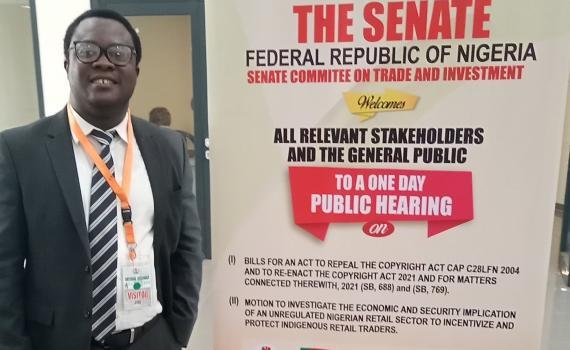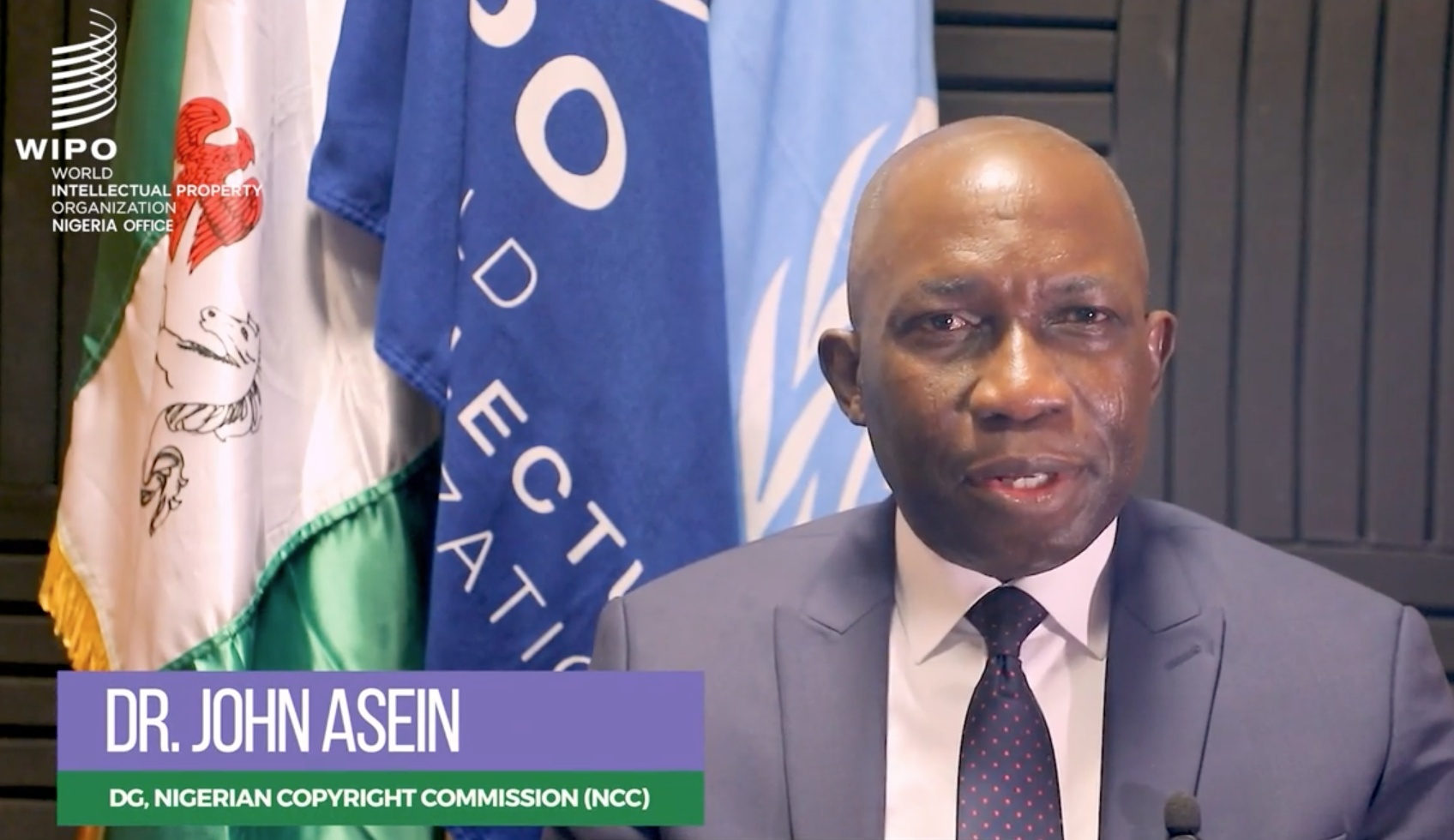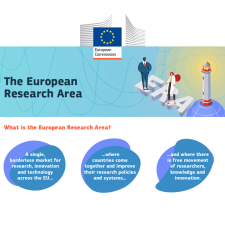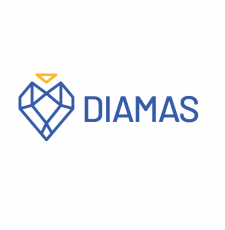
In March 2023, the President of Nigeria signed the Copyright Act, 2022 into law. EIFL’s analysis of the new law shows it to be one of the most progressive in the world with respect to libraries and library activities. Teresa Hackett, EIFL Copyright and Libraries Programme Manager, highlights the benefits to libraries of the new law and how it can inspire librarians and policymakers in other countries in Africa, and around the world.
The progressive nature of Nigeria’s new Copyright Act is visible right from the start: its objectives are both to “protect the right of authors to ensure just rewards and recognition for their intellectual efforts” and to “provide appropriate limitations and exceptions to guarantee access to creative works”. Thus, access by user communities is given the same weight as the rights of the authors (illustrating what is meant by ‘balanced’ copyright laws).
With new provisions allowing libraries to make copies of copyright-protected works consistent with their mission (such as supporting education and research, preserving Nigerian cultural heritage and providing inclusive services), it achieves a near perfect score on EIFL’s Core Library Exceptions Checklist. In addition, the text of the new law is clear and well drafted, assisting libraries and other user communities in understanding what the new law means for them.
What’s new in the Copyright Act, 2022?
The 2022 Act contains new exceptions for specific library activities, a more flexible fair dealing provision enabling activities that might not fall within the scope of specific exceptions, and it safeguards uses of digital content permitted by the new exceptions.
Section 25 (that draws on provisions in the EIFL Draft Law on Copyright) is a new specific exception for galleries, libraries, archives, and museums (GLAMs) that permits libraries to make and distribute copies for preservation, replacement and ordinary activities, while Section 26 (that implements the Marrakesh Treaty for persons with print disabilities) allows libraries and other so-called authorized entities to make and distribute accessible format copies.
Section 20(1) increases the flexibility of the existing fair dealing provision, thereby enabling libraries to engage in activities, such as web archiving, that might not fall within the scope of the specific exceptions. And by providing flexibility for potential uses not foreseen by the legislator (due to developments in technology, for example), it also helps to keep the law relevant for longer.
Mindful of the ubiquity of born digital content, Sections 20(3) and 50(7) safeguard the use of such content against licence terms and technological protection measures, such as digital locks, that might take away the uses permitted by law under the exceptions.
In addition, the pre-existing library exceptions in the 1988 Act (codified in 2004) have been carried forward into the new law, along with features ensuring that libraries can lend works in their collections (Section 9), and can import copies of non-infringing works (Section 36(b)).
EIFL’s Guide: What can Libraries in Nigeria do under the 2022 Copyright Act?
EIFL’s guide to Nigeria’s Copyright Act, 2022 evaluates the law against EIFL’s Core Library Exceptions Checklist that sets out provisions that every copyright law should have to support modern library services and activities. It scores a near perfect 34 points (out of a possible 36), the highest score ever awarded to a copyright law evaluated by EIFL. It scores top marks for collection development, support for education and research, preservation and replacement, and persons with disabilities, among other issues. In addition, the guide provides a detailed legal analysis of the library-related provisions, along with the relevant sections from the Act.
The guide can be used by the local library community, policymakers and legal practitioners to raise awareness of what the new law means for libraries and library activities in Nigeria. It can help identify new opportunities for libraries to support online education, build accessible collections for persons with print disabilities, and promote Nigerian culture and heritage at home and abroad.
It can also support the development of library copyright policies and if required, it can help to demonstrate copyright compliance for participation in international projects, for example, on digitization or the sharing of accessible books.
Setting the bar for the rest of the world
EIFL congratulates the leadership of the Nigerian Copyright Commission in successfully steering the bill through almost a decade of the legislative reform process, and for setting the bar for the rest of the world. With support from a wide range of stakeholders, the new law has clearly struck the proper balance among all the different interest groups, both users and rights holders alike. (While EIFL's review focuses on library provisions, the new law also addresses many issues of concern to copyright owners).
We hope that the provisions in Nigeria's Copyright Act, 2022 with respect to libraries and library activities will serve to inspire librarians and policymakers, not only in other countries in Africa, but around the world.

“The copyright system is also about balance and the constructive use of that system to grow the cultural life of the people, including the educational advancement and other scientific growth.” - Dr John Asein, Director General, Nigerian Copyright Commission, interviewed by the WIPO Nigeria Office, April 2023.
Background
EIFL has engaged in copyright reform in Nigeria most recently through the international project on the Right to Research. In 2021, EIFL's comments on the Copyright Bill 2021 (Executive Bill) were presented at a public hearing organized by the Nigerian Senate and in 2023, we wrote to the President, His Excellency Muhammadu Buhari, requesting that he sign the Copyright Bill into law at the earliest opportunity. On 17 March 2023, the President signed the bill and 10 days later, the Copyright Act, 2022 was published in the Official Gazette of the Federal Republic of Nigeria.
More information
Read -
- EIFL Guide: What can Libraries in Nigeria do under the 2022 Copyright Act? (October 2023)
- EIFL Guest blog: How libraries can benefit from Nigeria’s new copyright law, Dr. Desmond Oriakhogba (April 2023)
Watch -
- Interview by the WIPO Nigeria Office with Dr John Asein, Director General, Nigerian Copyright Commission, where he discusses the new Copyright Act, key improvements and its expected impact on the Nigerian creative industry (April 2023).
- Interview at the conference ‘A Right to Research in Africa?’ with Dr John Asein, Director General, Nigerian Copyright Commission and Ms Mercy K. Kainobwisho, Registrar General, Uganda Registration Services Bureau, reflecting on the right to research and the importance for Africa of a balance between rights and exceptions in copyright law (January 2023).
SHARE / PRINT








